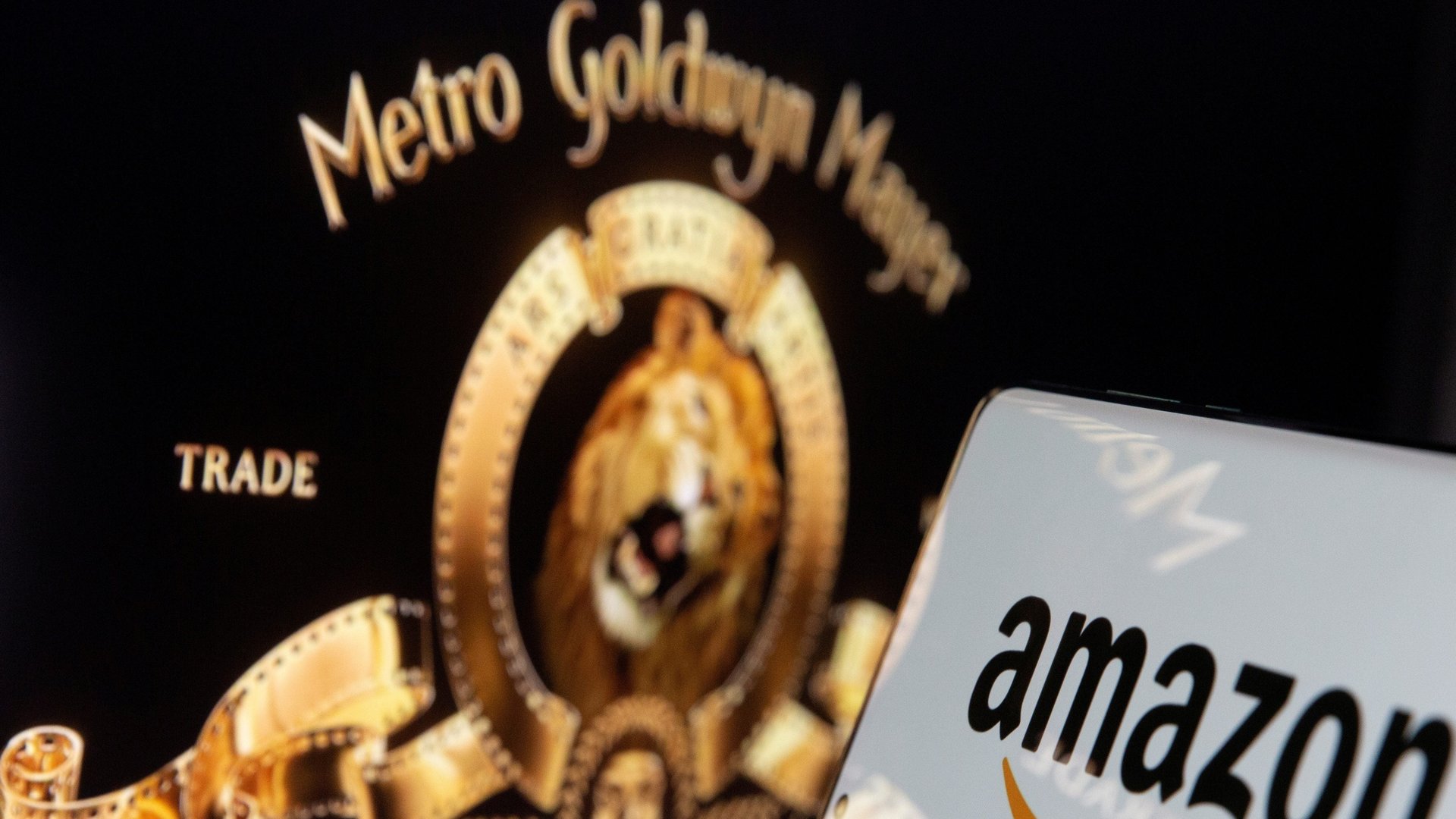Amazon’s MGM deal could elevate—or ruin—a historic film catalog
In the clearest example yet of Hollywood’s legacy institutions being swallowed up by Big Tech and media giants, MGM’s historic film franchises like James Bond, Pink Panther, and Rocky will now live on virtual Amazon shelves—right next to the toilet paper.


In the clearest example yet of Hollywood’s legacy institutions being swallowed up by Big Tech and media giants, MGM’s historic film franchises like James Bond, Pink Panther, and Rocky will now live on virtual Amazon shelves—right next to the toilet paper.
Amazon agreed to buy MGM for $8.5 billion, the company announced today. The century-old film studio becomes Amazon’s second biggest acquisition ever, behind only Whole Foods, which it purchased for $13.7 billion in 2017. By securing MGM, Amazon can now add the studio’s 4,000 movies to its streaming service, Amazon Prime Video. It will also own MGM’s TV division, which produces series like The Voice and The Handmaid’s Tale for networks like NBC and streaming services like Hulu. It’s unclear if that will continue long term under Amazon.
“The real financial value behind this deal is the treasure trove of IP [intellectual property] in the deep catalog that we plan to reimagine and develop together with MGM’s talented team,” Mike Hopkins, the senior vice president of Amazon Studios, said in a statement.
The Amazon MGM deal
Since launching Amazon Studios in 2010, Amazon founder and CEO Jeff Bezos has not been able to churn out the kind of big film and TV franchises he’s dreamed of. The unit has had success in scripted television with series like The Marvelous Mrs. Maisel and The Boys, but nothing that can be considered a global franchise on the level of Marvel’s superheroes or Game of Thrones. Amazon has already shelled out nearly $1 billion to make a Lord of the Rings series as it pursues a mega-hit.
Amazon has had even less success with making in-house movie franchises, choosing instead to license the distribution rights for potential blockbusters from other studios. It recently paid Paramount Pictures a reported $200 million for the rights to The Tomorrow War, a sci-fi action film starring Guardians of the Galaxy actor Chris Pratt.
Buying MGM is an extension—and expansion—of that strategy. Intellectual property is the lifeblood of streaming, and streaming helps sign up Amazon Prime customers, who then buy toilet paper, which nets Amazon enormous profits. As Netflix, Disney, and other companies grow their streaming footprints around the world, it’s vital for competitors to secure IP that allows them to convince consumers their platforms are better than the others. That’s precisely why WarnerMedia and Discovery are now merging into one mega-content company.
So Amazon gets lots of new content to pitch to consumers. And it will undoubtedly attempt to refresh these franchises, which, frankly, are in need of update. There may not actually be a way to make RoboCop or the Addams Family relevant again, but Amazon intends to find out. Bond, which is MGM’s most lucrative property, is still co-owned by Eon Productions and the UK’s Broccoli family, who have veto power over when and how the 007 character is used. Amazon will want to milk the famous British spy for all he’s still worth, but it’ll have to work with the Broccolis to do it.
What MGM gets out of the Amazon deal
The potential benefits for the MGM brand are less clear. The studio, which was formed in 1924, is one of Hollywood’s most venerable institutions. Over its storied history, it has produced films like The Wizard of Oz and Gone with the Wind (the rights to those two movies, however, have since been sold to Warner Bros.) At Amazon, MGM becomes just another cog in the content wars.
In recent years, the company has struggled financially, finding that it can’t thrive solely off past successes in today’s fractured media environment. It filed for bankruptcy in 2010, and is majority-owned by Anchorage Capital, an investment firm based in New York. Anchorage put a “for sale” sign up on MGM last year and received some interest, including Apple, which was said to be considering a $5 billion deal for the studio. Under Amazon, MGM will presumably get lots of capital to invest in new projects, as well as a robust streaming platform to surface its vast archive of content—a boon for cinephiles.
Amazon can afford to overpay for some shiny new toys. (In fact, Disney paid less for Marvel and Star Wars-maker, Lucasfilm, combined.) And MGM wasn’t in much of a position to be picky about its buyer. At least, with Amazon, MGM’s movies will live on in some capacity. Whether or not the famed MGM brand can survive Amazon’s takeover is another story entirely.